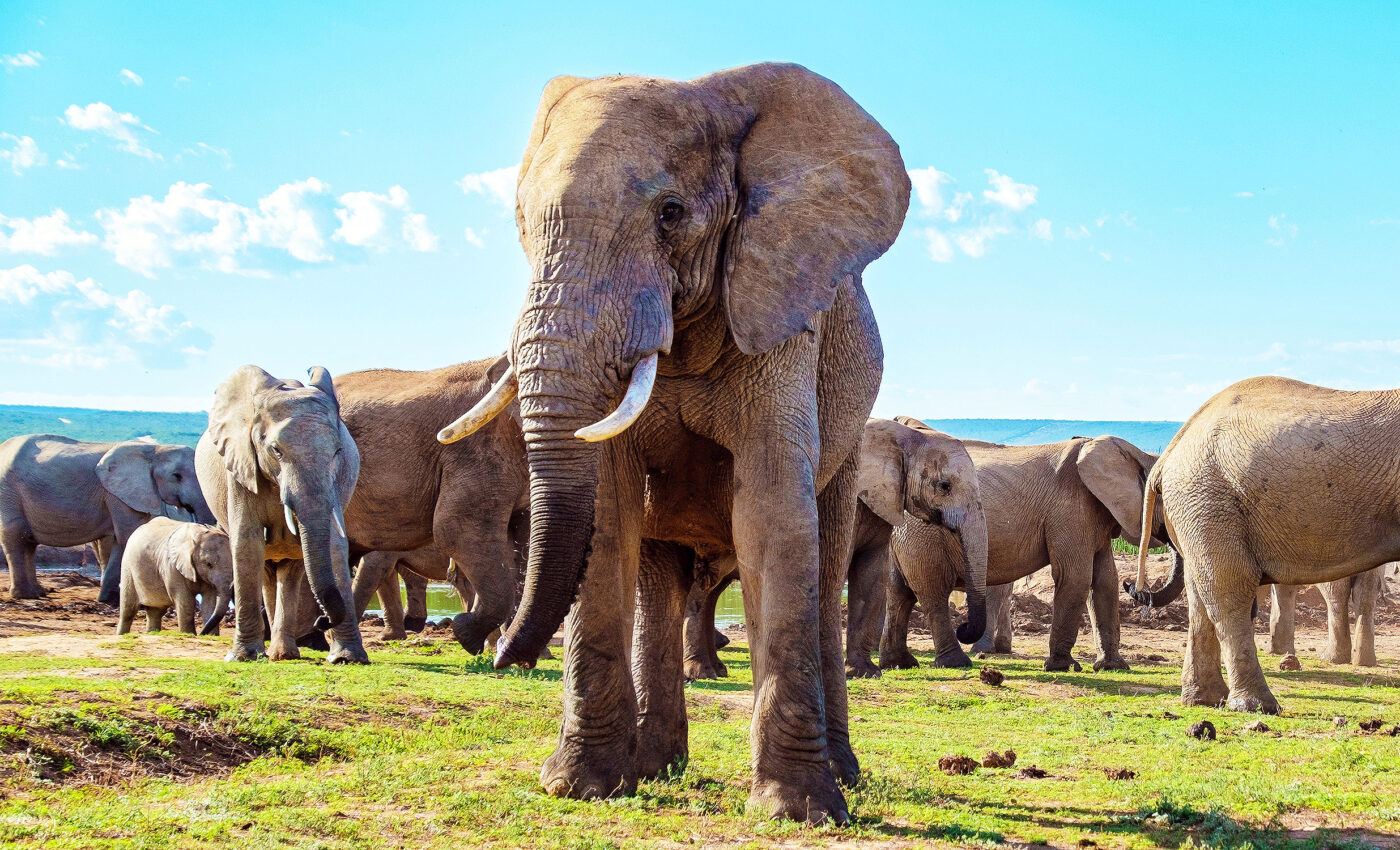
These US zoos have horrific living conditions for elephants
In Defense of Animals, an animal advocacy organization, has released its annual list of the “10 Worst Zoos for Elephants” in North America for 2023.
This list highlights the plight of male elephants in U.S. zoos, emphasizing their inadequate living conditions and mistreatment.
Horrific conditions
Topping the list is the Los Angeles Zoo & Botanical Gardens, which has been criticized for the treatment of Billy, its lone Asian bull elephant. Actor and musician Harley Quinn Smith supports the organization’s call for the release of all elephants to reputable sanctuaries.
The list includes various zoos across the United States, with institutions from California, Texas, New Mexico, Colorado, Missouri, Oklahoma, Florida, and Oregon being named.
These zoos have been called out for their treatment of bull elephants, which often includes solitary housing, separation from females, deprivation of food, and invasive breeding practices.
“A natural life is impossible for male elephants in captivity. Our 2023 list of the 10 Worst Zoos for Elephants reveals how incarcerated bull elephants are leading tormented, tragic lives in U.S. zoos,” said Courtney Scott, Elephant Consultant for In Defense of Animals.
Billy the elephant at the L.A. Zoo
Billy, at the Los Angeles Zoo, has become a symbol of the suffering endured by male elephants in captivity.
He has experienced invasive sperm extractions and exhibits signs of psychological distress, like constant head-bobbing, in his small enclosure.
This case, along with others, has prompted calls for action, with celebrities like Cher and Lily Tomlin advocating for the release of elephants like Billy to sanctuaries.
Important work from In Defense of Animals
In Defense of Animals argues that the natural physical and emotional needs of male elephants cannot be met in a zoo environment, leading to their suffering.
The organization urges zoos to end breeding programs, halt elephant imports, and transition existing elephants to sanctuaries.
Their vision is for all zoos to close their elephant exhibits, as 34 zoos have already done, and to stop subjecting bull elephants to the harsh conditions of zoo life.
“Male elephants are difficult and dangerous to keep because their natural physical and emotional needs are impossible to meet in a zoo environment,” said Marilyn Kroplick, M.D., President of In Defense of Animals.
“Zoos across the country are forcing bull elephants to lead tormented, tragic lives. Before you buy a zoo ticket, take a hard look at the invasive sexual procedures, solitary confinement, and damaged bodies of bull elephants.”
This statement underscores the organization’s call for a reevaluation of elephant captivity and a push towards more humane and natural living conditions for these majestic animals.
Here is the list of the 10 worst elephant zoos in the U.S.:
- Los Angeles Zoo, Los Angeles, Calif.
- Houston Zoo, Houston, Texas
- Albuquerque BioPark Zoo, Albuquerque, N.M.
- Denver Zoo, Denver, Colo.
- Kansas City Zoo, Kansas City, Mo.
- Dallas Zoo, Dallas, Texas
- Oklahoma City Zoo, Oklahoma City, Okla.
- St Louis Zoo, St Louis, Mo.
- Zoo Tampa, Tampa, Fla.
- Oregon Zoo, Portland, Ore.
More about elephants
As discussed above, elephants are among the largest and most majestic land mammals on Earth. Their presence in zoos has been a subject of both fascination and controversy.
Habitat and adaptation in zoos
Zoos provide a unique opportunity for the public to witness elephants up close. These facilities recreate habitats to simulate the natural environments of African and Asian elephants.
Expert caretakers and veterinarians closely monitor the health and well-being of these animals. They ensure that elephants have ample space to roam, bathe, and engage in natural behaviors.
Enrichment activities are a crucial aspect of their care, helping to stimulate the elephants’ physical and cognitive skills.
Conservation and education efforts
Zoos play a pivotal role in conservation efforts. Many participate in breeding programs aimed at increasing the population of endangered elephant species.
These initiatives are vital given the threats elephants face in the wild, including habitat loss, poaching, and climate change.
Zoos also serve as educational platforms. They offer visitors insights into the lives of elephants, fostering awareness and inspiring conservation efforts beyond zoo walls.
Criticisms of elephants in zoos
Despite these efforts, housing elephants in zoos is not without challenges. Critics argue that even the best artificial environments cannot fully replicate the vast and complex habitats elephants naturally inhabit.
Issues such as limited space can lead to health problems like foot and joint disorders. The social structure of elephants, which is intricate and dynamic in the wild, can be hard to replicate in captivity, leading to potential psychological stress.
Ethical considerations
The ethical implications of keeping elephants in zoos are a topic of ongoing debate. Advocates stress the importance of zoos in conservation and education. They argue that zoos provide a sanctuary for elephants who might otherwise face threats in the wild.
Critics, however, contend that the confinement and inevitable limitations of zoo environments do not justify their role in education or conservation. They advocate for alternative conservation strategies that focus on protecting elephants in their natural habitats.
Moving forward with elephants in zoos
The future of elephants in zoos is evolving. Many zoos are re-evaluating their practices, focusing on creating more expansive and naturalistic environments.
There is a growing emphasis on global conservation partnerships and efforts to improve conditions for elephants both in captivity and in the wild.
In summary, the presence of elephants in zoos is a complex issue, balancing the benefits of conservation, education, and public engagement with the challenges and ethical considerations of captivity.
As our understanding of these magnificent creatures grows, so too must our commitment to their well-being, whether in zoos or in their natural habitats.
—–
Like what you read? Subscribe to our newsletter for engaging articles, exclusive content, and the latest updates.
Check us out on EarthSnap, a free app brought to you by Eric Ralls and Earth.com.
—–













